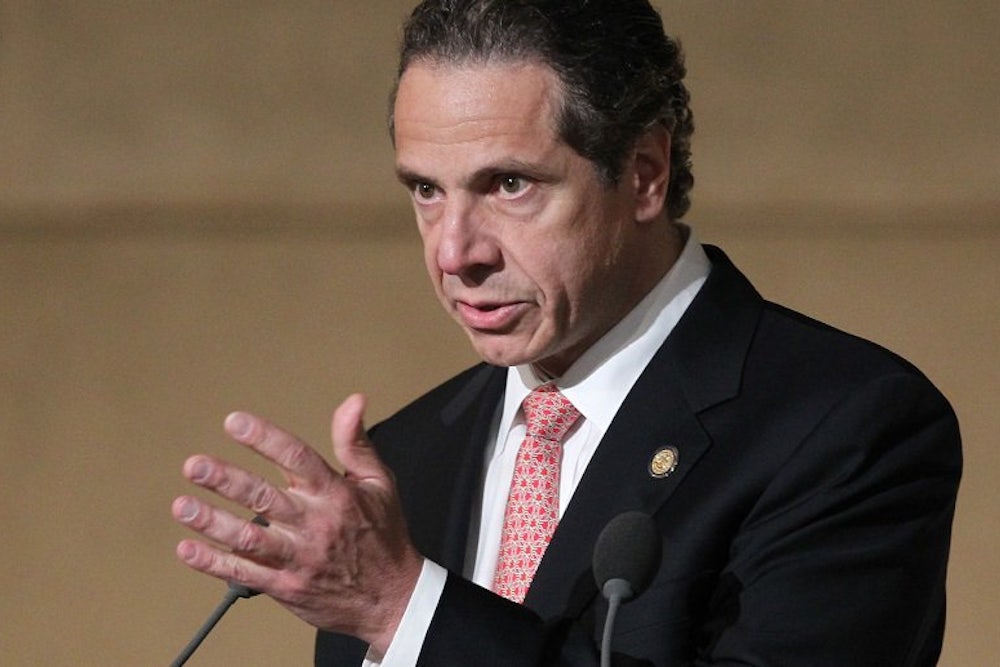On Wednesday, Governor Andrew Cuomo announced that he might use unilateral powers to raise the wages of fast food workers. In New York, the governor has the power to impanel a “Wage Board” that investigates whether wages in a specific industry are adequate to cover health and living expenses and makes recommendations accordingly. Cuomo is invoking those powers.
“Through the Wage Board, New York can set fast-food workers on a path out of poverty, ease the burden on taxpayers and create a new national standard,” Cuomo wrote in a New York Times op-ed. He cited the exorbitant pay of fast food C.E.Os and foreign countries’ experiences with higher minimum wages as evidence that the industry can handle a higher minimum wage in New York. (New York’s minimum wage is $8.75 per hour, and will rise to $9 per hour at the end of the year.)
This is great news for New York's fast food workers, who are likely just a few months away from receiving a pay raise. But Cuomo also made one other argument for the wage hike that doesn't withstand scrutiny.
“Fast-food workers and their families are twice as likely to receive public assistance compared with other working families,” he wrote. “New York State ranks first in public assistance spending per fast-food worker, $6,800 a year. That’s a $700 million annual cost to taxpayers.” He added, “The government is subsidizing these corporations, allowing them to keep their labor costs low and their profit margins high.”
This argument—that the government subsidizes fast food corporations by lowering wages—has political appeal to liberals but it’s not true.
A few weeks ago, the U.C. Berkeley Labor Center garnered national attention for its report titled “The High Public Cost of Low Wages.” The researchers found that the government pays more than $150 billion a year to workers with low wages. In response, economist Arindrajit Dube, who supports raising the minimum wage, wrote on his blog, “For a program to be a subsidy for an employer, it needs to lower wages. Is this plausible for the public assistance programs considered?” He concluded that the only program that actually may lower wages is the Earned Income Tax Credit because it increases the labor supply. With more workers, employers can offer lower wages. But for other programs—food stamps, Medicaid, housing assistance—this isn’t the case. Here’s Dube:
Let’s take food stamps, which are available to eligible families whether or not a family member works or not. Indeed, when people are not working, they are more likely to be eligible for food stamps since their family incomes will be lower. Therefore, SNAP is likely to raise, and not lower a worker’s reservation wages—the fallback position if she loses her job. This will tend to contract labor supply (or improve a worker’s bargaining position), putting an upward pressure on the wage. ... The key point is that it is difficult to imagine how food stamps would lower wages. And if they don’t lower wages, they can’t be thought of as subsidies to low wage employers.
Cuomo’s argument is politically powerful because Americans don’t believe that an employee working full-time should live in poverty. That’s a normative argument about fairness that resonates with just about every American, and it’s the main reason why raising the minimum wage has support even among Republicans. But it’s important to remember how the safety net actually affects the labor market.
